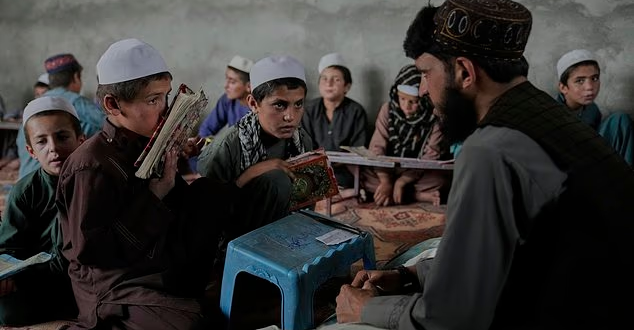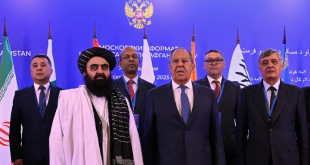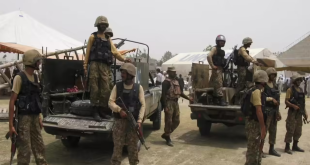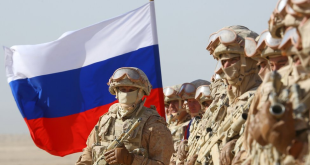KABUL – In a dramatic shift reshaping Afghanistan’s future, the Taliban has begun systematically replacing the country’s secular public schools with a sprawling network of madrassas—religious seminaries focused almost exclusively on Islamic teachings. The trend is being described by education experts as the “madrasafication” of an entire generation, raising alarm both domestically and internationally.
Across Kabul’s backstreets, the transformation is visible: boys in white tunics and caps sit cross-legged in classrooms, chanting Quranic verses from memory. These madrassas—once supplemental religious institutions—are now becoming the dominant education providers for millions of Afghan children. In one school north of the capital, enrollment has soared from 35 to over 160 students in just five years. In total, the number of Taliban-approved madrassas has surged from around 5,000 to more than 21,000 since 2021, now educating over 3.6 million students—more than those enrolled in the country’s remaining secular schools.
While some madrassas offer basic subjects like math and English, most focus almost entirely on Quran memorization, Islamic jurisprudence, and Arabic. Human rights, civic education, science, art, and literature have been largely removed from the curriculum. Former public school buildings have been converted into seminaries, teachers have been dismissed or reassigned, and libraries and science labs stripped of resources. Even universities have been swept into the ideological overhaul, with Islamic studies now dominating academic credits.
Critics say this radical shift is less about preserving faith and more about cementing Taliban control. International education advocates warn that Afghanistan is producing a generation deprived of critical thinking, scientific understanding, and global skills. The implications, they say, could stretch beyond national borders—undermining stability in the region and potentially fueling extremism.
The situation is even more dire for Afghan girls. With the Taliban’s ban on secondary and university education for females still in place, only a small number are permitted to attend madrassas, and even then, the quality and breadth of education remains deeply limited. Human Rights Watch and other observers have described this as a deliberate erasure of women from public and intellectual life.
The psychological toll is also becoming apparent. Reports have emerged of young boys being conditioned to enforce strict religious codes at home—some even informing on their mothers and sisters for perceived violations of Islamic norms. Corporal punishment is reportedly common in these institutions, and the impact on children’s mental health is raising alarm among medical professionals.
For many Afghan families, madrassas are now the only available option. Public schools are underfunded, understaffed, and often non-functional due to years of conflict, sanctions, and Taliban purges. While some parents welcome religious education, others are increasingly concerned about the lack of quality and diversity in learning.
Beyond education, experts warn that this transformation could deepen Afghanistan’s isolation. With no system to develop engineers, doctors, scientists, or entrepreneurs, the country faces a looming economic and intellectual collapse. Analysts say the shift is turning Afghanistan into a theocratic vacuum—cut off from the global economy, reliant on foreign aid, and with an entire generation ill-equipped to meet modern challenges.
The Taliban has remained defiant in the face of criticism, claiming its curriculum reforms are meant to build a morally upright society. But to observers in the West, the expansion of madrassas is seen less as reform and more as indoctrination—one that may entrench authoritarianism for decades to come.
 Afghanistan Times Latest News and Analysis from Afghanistan and the Region
Afghanistan Times Latest News and Analysis from Afghanistan and the Region




